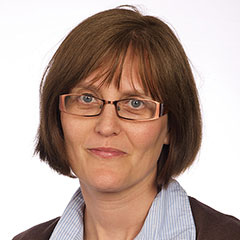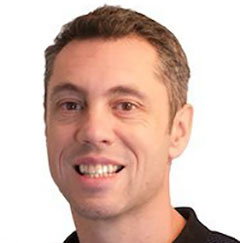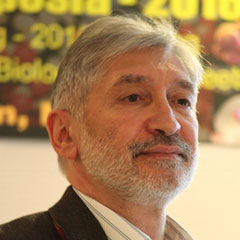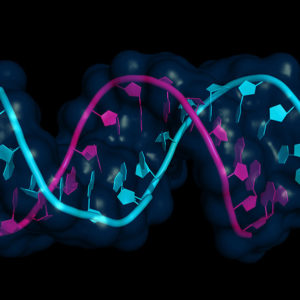RNA Transcriptomics
23–30 June 2023
Wellcome Genome Campus, UK
Hands-on training in the latest laboratory and computational methods for transcriptomic analysis
Course Summary
Rapid advances in genome analysis technology have opened up new and exciting possibilities for studying the transcriptome and its function.
In particular, third generation, single molecule sequencing technologies, and single cell technologies, combined with perturbation tools, allow the analysis of complete RNA species – both short and long – at high resolution. In parallel, these tools have opened new ways in understanding gene function at the tissue, network, and pathway level; as well as detailed characterisation of their function.
This exciting course will provide hands-on training in advanced laboratory and computational methods for the analysis of transcriptomes, including long non-coding RNAs and microRNAs, along with their post-transcriptional and epi-transcriptomic modification.
The programme will focus on new technologies for direct RNA sequencing, and complete single molecule cDNA sequencing, single cell RNA sequencing, and the characterisation and analysis of non-coding RNAs (such as lncRNAs and microRNAs). Analysis of the epi-transcriptome, including RNA methylation and modification, will also be covered.
The practical programme will be complemented by distinguished guest speakers, who will present the latest research in this fast-moving field, along with opportunities for informal discussions.
Learning outcomes
After attending this course, participants should be able to:
- Evaluate advanced RNA transcriptomic analysis methodologies and their applications
- Appreciate different approaches currently in use to address specific research questions in the field of RNA transcriptomics
- Assess the strengths, weaknesses, and limitations of different transcriptomic methodologies and approaches
- Integrate and apply the knowledge and training from the course to their own research interests/projects
*To fully benefit from the data analysis sessions participants will require a basic knowledge of Linux/Unix command line as well as the R programming environment. Numerous free online tutorials are available in these resources. e.g.:
http://www.ee.surrey.ac.uk/Teaching/Unix/
http://tryr.codeschool.com/
Programme
The course will include laboratory and computational* practical sessions, along with lectures and discussions, covering the following topics:
- Overview of single molecule long read sequencing technologies
- Full length total RNA sequencing
- Full length cDNA sequencing
- Small RNA sequencing
- Single cell transcriptome data generation and analysis
- Functional assays for lncRNA biology
- Integration of microRNA and mRNA data; functional analysis of microRNAs
- Expression network and pathway integration and analysis
Organisers and speakers
Organisers

Prof Francesca Buffa
Department of Oncology, Medical Sciences Division, University of Oxford, UK

Dr Anton Enright
Department of Pathology, University of Cambridge, UK

Prof Ioannis Ragoussis
McGill Genome Centre, McGill University, Canada

Dr Alena Shkumatava
Institut Curie, France
Teaching Assitants
Dr Vedrana Andric – Institut Curie, France
Mr Anthony Bayega – McGill University, Canada
Mr Badran Elshenawy, University of Oxford, UK
Dr Spyridon Oikonomopoulos – McGill University, Canada
Dr Andrea Tangherloni – Bocconi University, Italy
Miss Stephanie Wenlock – University of Cambridge, UK
Guest Speakers
TBC
WCS Support Team
Mr Martin Aslett
Miss Jacqui Brown
Mrs Karon Chappell
Mr Aaron Dean
Dr Cassandra Soo
How to apply
Prerequisites
Applicants should be researchers or clinician scientists interested in applying advanced laboratory and computational methodologies for the analysis of transcriptomes, including long non-coding RNAs and microRNAs, as well as post-transcriptional modifications. It is suitable for PhD students working on a relevant project, postdoctoral trainees and fellows, as well as early career researchers.
To fully benefit from the data analysis sessions participants will require a basic knowledge of Linux/Unix command line as well as the R programming environment.
Numerous free online tutorials are available for these resources. e.g.:
http://www.ee.surrey.ac.uk/Teaching/Unix/
http://tryr.codeschool.com/
How to Apply
Please complete the online application form. Places are limited and will be awarded on merit. If you have any problems with the online application process, please contact the WCS event organiser.
Please note: Applications must be supported by a recommendation from a scientific or clinical supervisor (e.g. supervisor, line manager, or head of department). A request for a supporting statement will be sent to your nominated sponsor automatically during the application process. Applicants must ensure that their sponsor provides this supporting statement by the application deadline. Applications without a supporting statement cannot be considered.
Application deadline: 16 March 2023
Travel visas
Successful applicants will be provided with a support letter for their visa application, if required.
Please visit the following websites for further information on visiting the UK:
Cost
| Cost | ||
| *Course fee | £1120 | This course will be delivered as a face-to-face course. |
Limited bursaries are available (up to 50% reduction on the course fee) and are awarded on merit.
If you would like to apply for a bursary, please complete the bursary section of the online application form. Please note that both the applicant and sponsor are required to provide a justification for the bursary as part of the application.
Where there are many bursary applications, the selection committee may issue smaller amounts. Applicants will be notified of a bursary award along with their place on the course, usually within one month of the application deadline. The decision of the selection committee is final.
Additional funding opportunities
Visit our support page for additional financial support opportunities currently available.
Application and bursary deadline: 9 March 2023
Extra accommodation
If you wish to book onsite accommodation either side of the course dates, please contact the Conference Centre directly.
Accommodation services phishing scam – please be vigilant. More information.
Testimonials
Feedback from the 2019 course:
“All the instructors on the course were very knowledgeable. Having an aspect of wet lab with bioinformatics was perfect! This course helped me get an overview of all the techniques and tools available for data analysis which would be very helpful for my future work. The food and accommodation were great too!”
“The course was amazing! The quality of the teaching was extremely high and the lecturers were such experts!”
“Just a big thank you to all organisers, instructors, and everyone involved for amazing experience and great opportunity to discuss my research as well as the ideas inspired from this course”
“Thank you so much for organising this intensive, comprehensive and amazing course.”
“The course content was well organized, course trainers were very very passionate about making this course successful”
“Thank you so, so much to everyone involved. The huge amount of time and effort behind the scenes and every night working on the data was just incredible and I really appreciated it.”
“Excellent course! Definitely would recommend!”
“Thank you for allowing me the opportunity to attend this course. It was extremely beneficial.”

